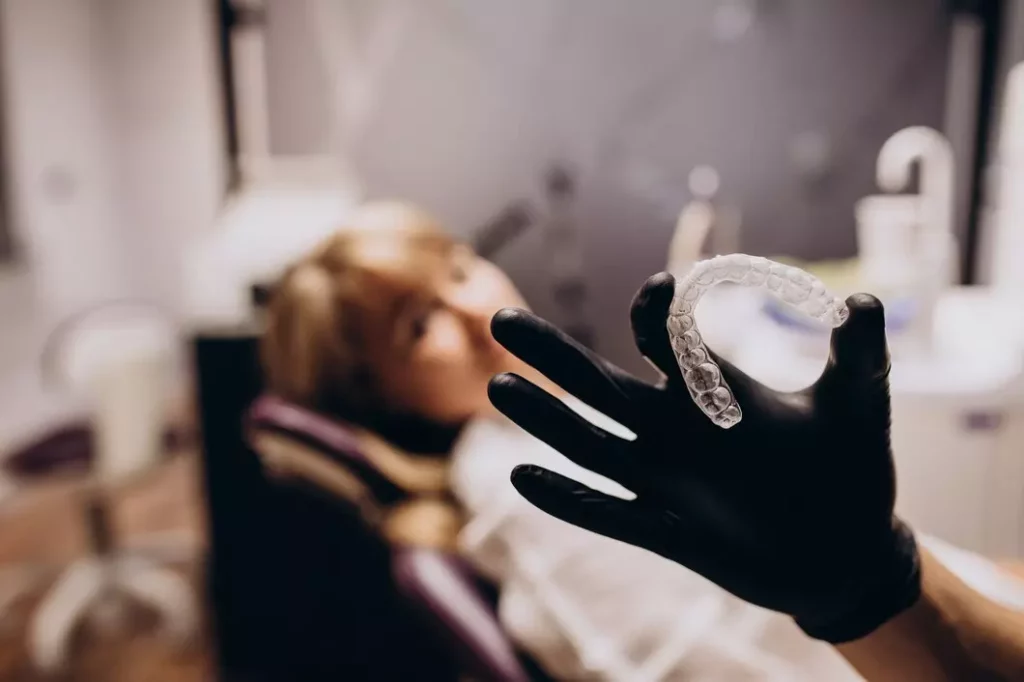
Clifton Dentist - Teeth Grinding
Need a consult?
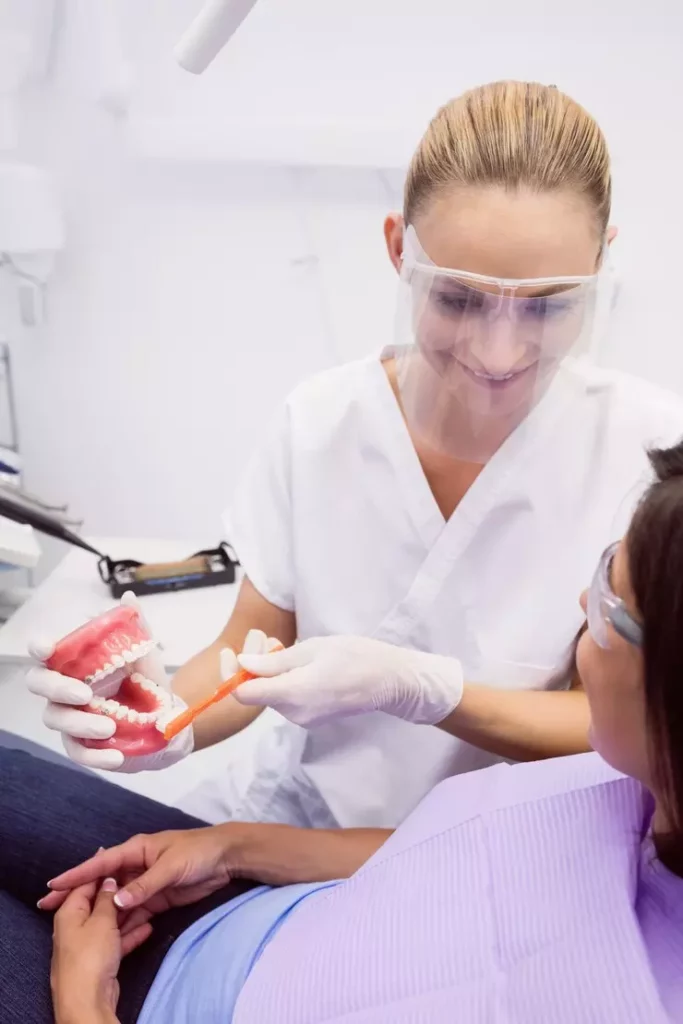
Information
Bruxism is a condition where you grind, gnash, or clench your teeth. It can occur during the day or at night while you sleep. Dental bruxism, specifically nighttime grinding, is often more challenging to control because it happens unconsciously.
Grinding teeth can lead to various dental problems, such as tooth wear, fractures, and increased tooth sensitivity. It can also cause jaw pain, headaches, and damage to dental restorations like fillings and crowns. Stress, anxiety, sleep disorders, and an abnormal bite are common factors contributing to bruxism. If you suspect you have bruxism, it’s essential to consult a bruxism specialist for proper diagnosis and teeth grinding treatment to prevent further dental issues.
Doctor
Choosing Dr. Edward Doktorman at Prestige Dental for your bruxism treatment is a good choice. As a teeth grinding dentist and specialist, Dr. Doktorman has extensive experience in diagnosing and treating bruxism. His expertise ensures you receive effective care to your specific needs.
Located in Clifton, Prestige Dental provides a comfortable and welcoming environment for all patients. Dr. Doktorman uses the latest technology and treatment methods, such as custom-fitted mouthguards, to provide treatment for teeth grinding.
Additionally, Dr. Doktorman can address any related dental issues, such as dental bone graft, so your overall oral health is well-managed. His patient-centered approach means you will receive explanations and support throughout your treatment process.
By choosing Dr. Edward Doktorman at Prestige Dental, you can trust you’re in the hands of a skilled teeth grinding specialist who is dedicated to improving your oral health.
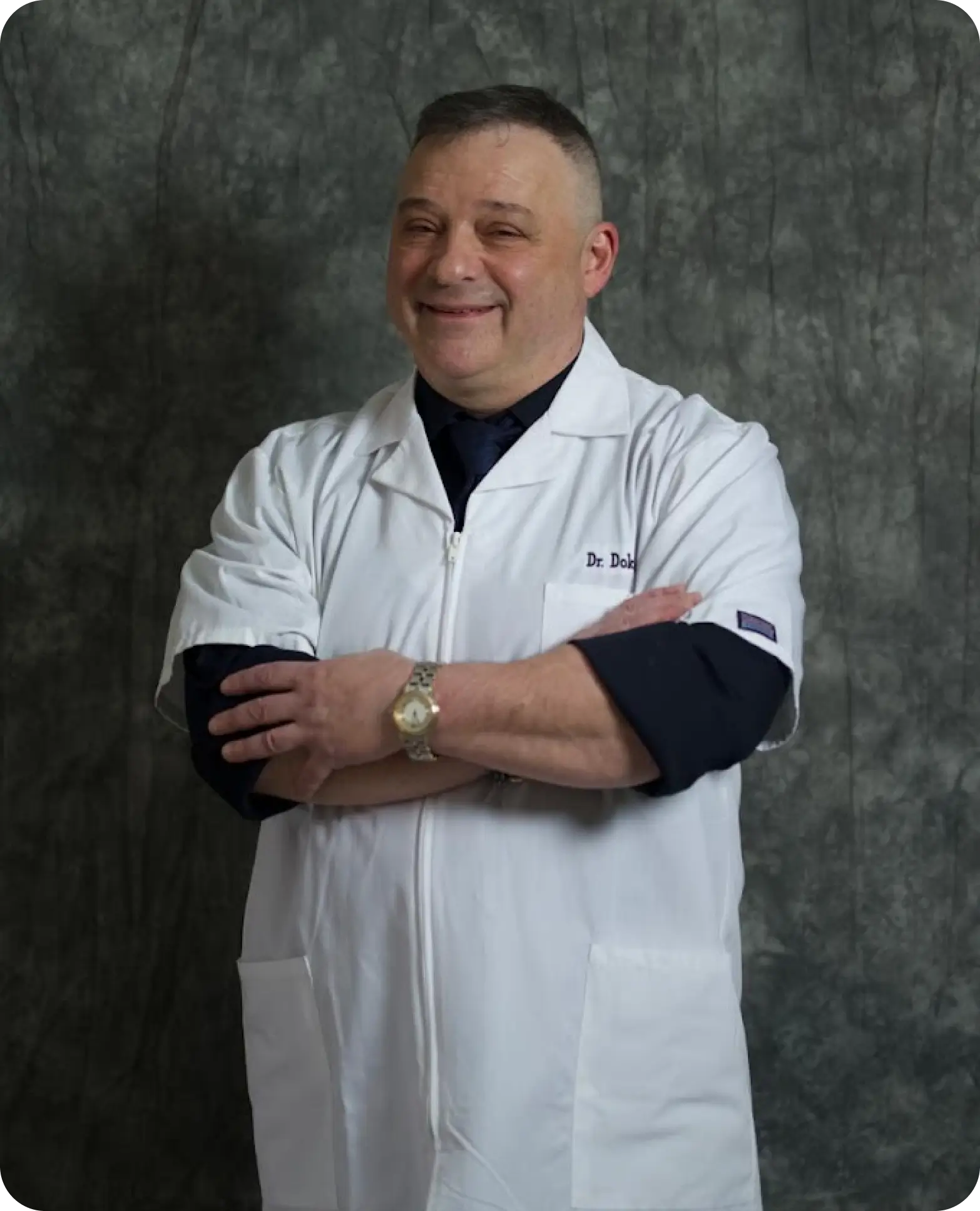
Testimonials
Trustindex verifies that the original source of the review is Google. I have been to many dentists throughout the years, mainly because as a kid too young adult, I did not take good care of my teeth, so now im paying the price. This is by far the best dentist i have ever been to, he redid the work of a bad crown from another dentist and also did an implant for me, during the entire process of both procedures during different time frames he made me feel comfortable and took his time with me, answering all my questions. It's refreshing to have a dentist who doesn't rush from door to door, taking in multiple patients at once. After the implant tooth was put in, if I needed more adjustments, he let me know to call, and he will make time to get it adjusted for me. Also, so far, appointments have been very spot on, at most 5 - 10 min wait, but sometimes I get in even earlier. This is my main dentist now for all work going forward.Trustindex verifies that the original source of the review is Google. I’ve been a regular patient of Dr. Doctorman for over a decade, and I can confidently say he’s an exceptional dentist. His expertise and attention to detail have resolved all my dental issues, and his commitment to thorough, personalized care is unmatched. I consistently receive top-notch treatment during my regular checkups, and his friendly demeanor makes each visit pleasant. Dr. Doctorman is the ultimate professional in his field, and I highly recommend him to anyone seeking reliable and effective dental care.Trustindex verifies that the original source of the review is Google. Excellent service, always patient with me to ease my nerves during any process and kind staff. Highly recommend!Trustindex verifies that the original source of the review is Google. I’ve been going to Dr. Doktorman for a few years now, and he’s been great. He’s really good at what he does and always makes sure I understand what’s going on with my teeth. I used to feel a little nervous about going to the dentist, but he’s so calm and friendly that it’s not a big deal anymore. The office is nice and clean, and the staff is always polite and helpful. I highly recommend Dr. Doktorman if you’re looking for a dentist who’s professional and easy to talk to. He’s been a great dentist, and I’m extremely happy with the care that I’ve received.Trustindex verifies that the original source of the review is Google. Dr Doktorman has been my dentist for nearly 10 years. He is always very courteous and professional. I always recommend him to friends and family.Trustindex verifies that the original source of the review is Google. I have been Dr. Dokterman's patient for years and will continue to be. From typical cavity fillings to root canals his work is top notch. He and his staff are also welcoming and professional.Trustindex verifies that the original source of the review is Google. Dr. Doktorman has great customer service and he and his dental staff do wonderful dental work!Trustindex verifies that the original source of the review is Google. Excellent clinic. I am a patient of Doctorman for the last five years, his very profesional and a good doctor. Staf its very helpful and friendly I would recommend Prestige dental to all my friends and family.Trustindex verifies that the original source of the review is Google. I was referred by a good friend. I Never have to wait later than my appointment time. The office is very clean and the staff is amazing. Dr. Doktorman is very informative and knowledgeable, he explains everything in details. I can’t wait to go to my next cleaning.Trustindex verifies that the original source of the review is Google. I can't say enough great things about Dr. Doktorman! He is incredibly caring and truly goes above and beyond for his patients. I always appreciate how he follows up after appointments to ensure everything is going well—it's clear he genuinely cares about his work and his patients' well-being. He is honest, trustworthy, and takes the time to listen to my concerns, making me feel heard and valued as a patient. I trust him wholeheartedly, not just with my care but with my entire family's as well.
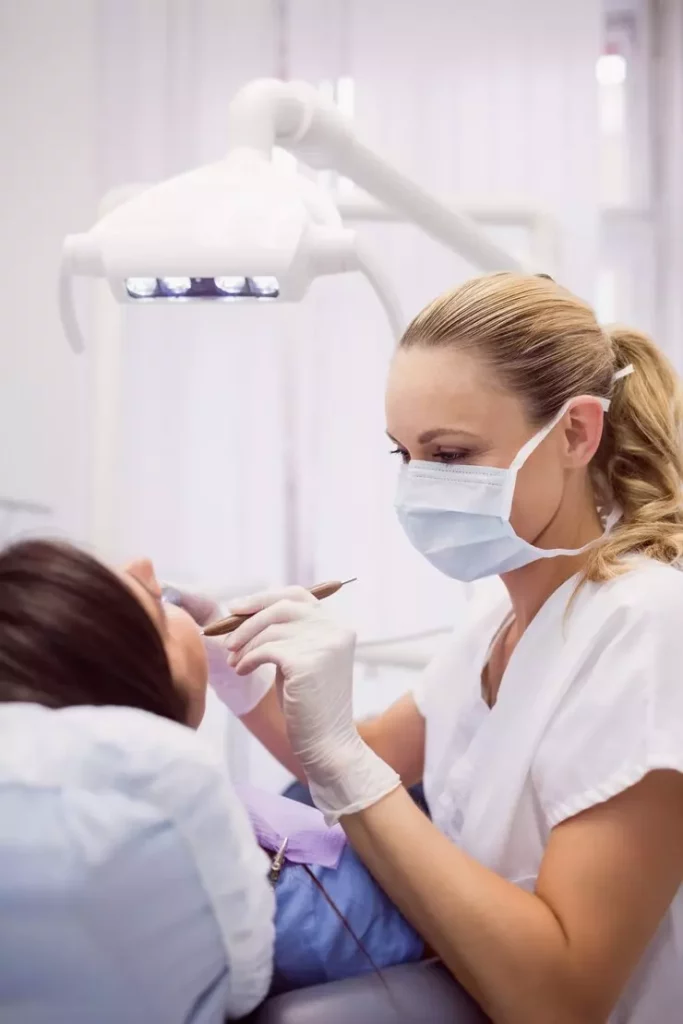
WHY US
Common symptoms include:
If you experience any of these symptoms, consult a dentist in Clifton for evaluation and appropriate teeth grinding treatment to prevent further damage.
Information
Before
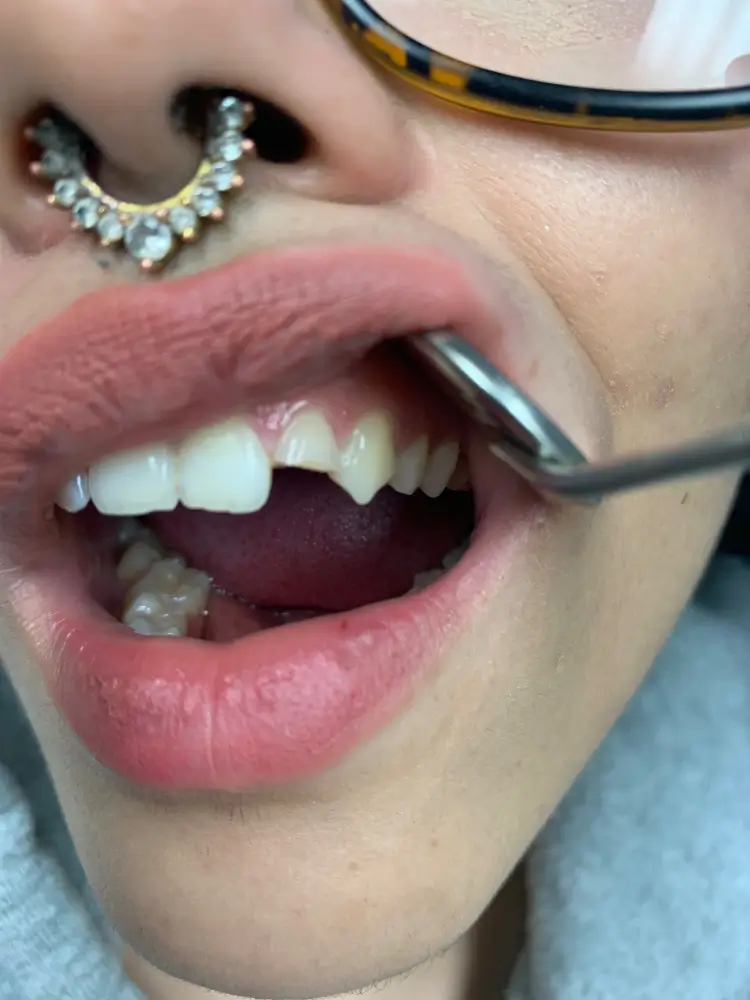
After
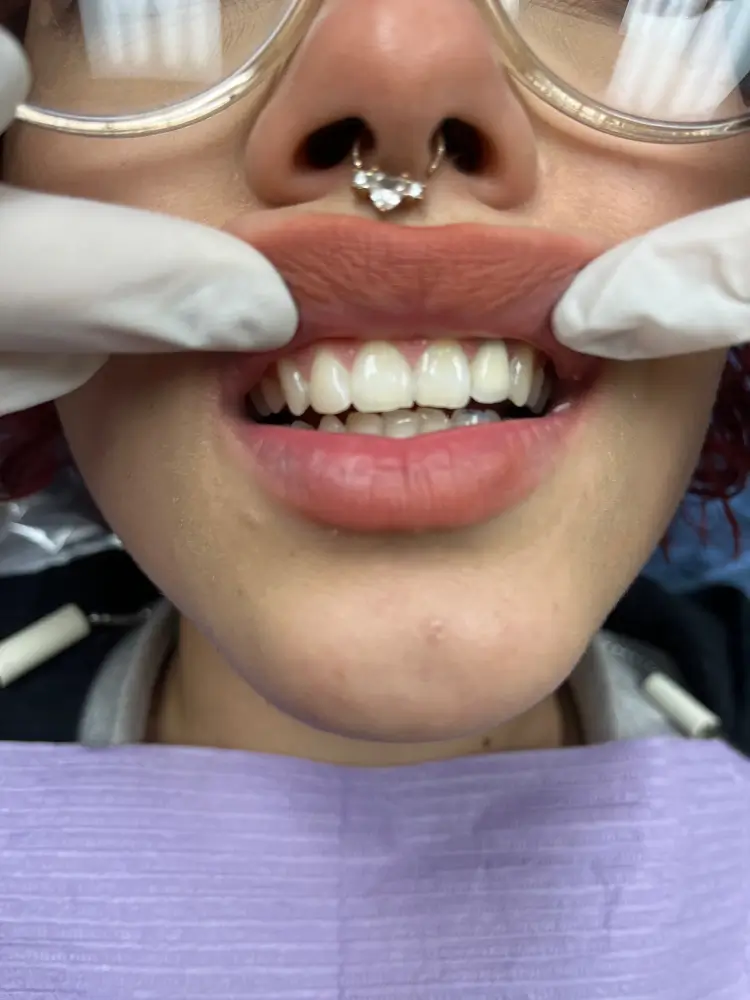
Information
There are two main types of bruxism: awake bruxism and sleep bruxism.
This occurs when you grind or clench your teeth while awake. It is often related to stress, anxiety, or concentration. People with awake bruxism may not be aware of their habit until they notice symptoms like jaw pain or worn teeth.
This happens during sleep and is considered a sleep-related movement disorder. Individuals with sleep bruxism might grind their teeth without knowing it, often alerted by a partner who hears the grinding. Symptoms can include jaw soreness, headaches, and disturbed sleep.
Both types can lead to similar dental problems, such as tooth wear, fractures, and jaw pain. Identifying the type of bruxism is important for effective bruxism treatment.
Treatment for bruxism is different for every particular case, and also may involve a combination of approaches, not just a one-size-fits-all solution. Here are some common options:
These treatment options can help alleviate symptoms and protect your teeth from the effects of grinding.
Dr. Edward Doktorman, DDS, has been consistently recognized by the Consumers’ Research Council of America for his excellence in family, cosmetic, implantology, and general dentistry, earning multiple “America’s Top Dentists” awards from 2014 to 2017.
List of Certificates:
You should see a dentist if you experience persistent jaw pain, headaches, tooth damage, or if you notice signs of grinding while sleeping. Early intervention can prevent further dental issues and alleviate discomfort.
Yes, bruxism is treatable. With proper diagnosis and a combination of treatments tailored to your specific needs, you can manage the symptoms effectively and protect your teeth and overall oral health.
Dental guards, also known as night guards, are custom-made appliances that fit over your teeth. They help to protect your teeth from the effects of grinding and clenching and can reduce jaw pain and discomfort.
Need a consult?